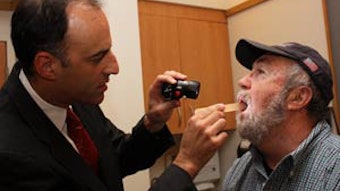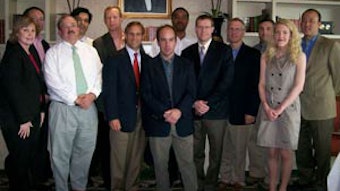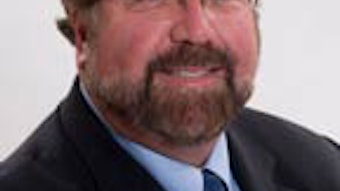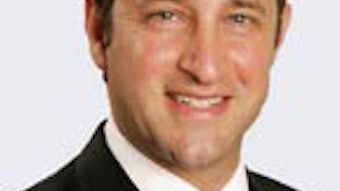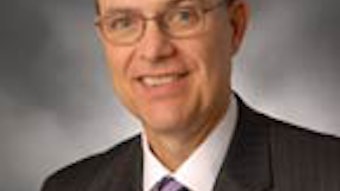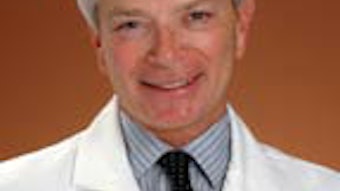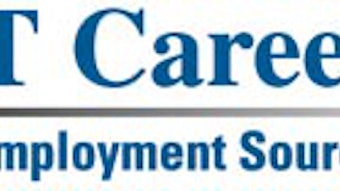Candidates for Secretary, Board of Governors, 2011 (Vote for One)
Wendy B. Stern, MD Qualifications and Experience When I opened my private practice 20 years ago in Massachusetts, I got a loan, hired a staff, and bought some equipment. I was a member of our Academy, but had no inkling of the BOG. Time and circumstances have led me down a fulfilling path. I am now the senior partner in a four-person group with a support staff of 36. I have served as board member, president, and currently am the Public Relations representative for my state society. I’ve been a member and co-chair of the BOG PR committee and will soon serve as the chair of the Academy Media and Public Relations Committee. I participate in the Joint Surgical Advocacy Conference (JSAC) and have served as a lecturer and panelist in many settings. Given the Academy’s strategic plan, outline and prioritize your goals for the BOG? The BOG is the grassroots voice of our membership and serves as a conduit for information to and from our Academy. As BOG Secretary, I will facilitate this flow through work with our member societies, BOG committees, and the BOG miniseminar. I look forward to the opportunity to serve our otolaryngologic community in this exciting time. Hayes H. Wanamaker, MD Qualifications and Experience Over the last 20 years, I have had a broad range of clinical, academic, and management experience which I can use for the benefit of the BOG. I have a teaching appointment at Upstate Medical University, supervise residents and 15 attendings as chief of ENT at Crouse Hospital, and serve on the medical executive committee. I have dealt with scope of practice, pay for call, and EMTALA issues. As president of a 430-member IPA, I have gained invaluable experience in management, carrier relations, coding, and reimbursement issues. Most recently I have helped lead the effort to strike down a New York State law preventing otolaryngologists from dispensing hearing aids, gaining experience in political advocacy. I serve on several nonprofit boards, including the Salvation Army, the Crouse Health Foundation, and the Guardian Angel Society, which provides scholarships for inner city children to attend private schools. Given the Academy’s strategic plan, outline and prioritize your goals for the BOG? The Academy has a comprehensive strategic plan encompassing advocacy and health policy, research and quality, education and knowledge, membership strength and unity, and sustainability. All of these goals require dedicated effort from across the Academy membership. This is a time of great challenge and change. My goal as secretary of the BOG is to help provide our members with the knowledge, skills, and resources to navigate these challenges. Our more established members need help modifying what had worked in the past. Our newer members need guidance to establish successful practices in an uncertain environment. We all need resources, education, and assistance coping with the onslaught of state and federal mandates and regulations as well as constant threats from insurance companies. The more we can help our colleagues with these issues, the better they will be able to focus their time on their continuing medical education, patient care, and public health.

Qualifications and Experience
When I opened my private practice 20 years ago in Massachusetts, I got a loan, hired a staff, and bought some equipment. I was a member of our Academy, but had no inkling of the BOG. Time and circumstances have led me down a fulfilling path. I am now the senior partner in a four-person group with a support staff of 36. I have served as board member, president, and currently am the Public Relations representative for my state society. I’ve been a member and co-chair of the BOG PR committee and will soon serve as the chair of the Academy Media and Public Relations Committee. I participate in the Joint Surgical Advocacy Conference (JSAC) and have served as a lecturer and panelist in many settings.
Given the Academy’s strategic plan, outline and prioritize your goals for the BOG?
The BOG is the grassroots voice of our membership and serves as a conduit for information to and from our Academy. As BOG Secretary, I will facilitate this flow through work with our member societies, BOG committees, and the BOG miniseminar. I look forward to the opportunity to serve our otolaryngologic community in this exciting time.
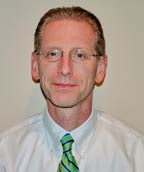
Qualifications and Experience
Over the last 20 years, I have had a broad range of clinical, academic, and management experience which I can use for the benefit of the BOG. I have a teaching appointment at Upstate Medical University, supervise residents and 15 attendings as chief of ENT at Crouse Hospital, and serve on the medical executive committee. I have dealt with scope of practice, pay for call, and EMTALA issues.
As president of a 430-member IPA, I have gained invaluable experience in management, carrier relations, coding, and reimbursement issues. Most recently I have helped lead the effort to strike down a New York State law preventing otolaryngologists from dispensing hearing aids, gaining experience in political advocacy. I serve on several nonprofit boards, including the Salvation Army, the Crouse Health Foundation, and the Guardian Angel Society, which provides scholarships for inner city children to attend private schools.
Given the Academy’s strategic plan, outline and prioritize your goals for the BOG?
The Academy has a comprehensive strategic plan encompassing advocacy and health policy, research and quality, education and knowledge, membership strength and unity, and sustainability. All of these goals require dedicated effort from across the Academy membership. This is a time of great challenge and change. My goal as secretary of the BOG is to help provide our members with the knowledge, skills, and resources to navigate these challenges. Our more established members need help modifying what had worked in the past. Our newer members need guidance to establish successful practices in an uncertain environment. We all need resources, education, and assistance coping with the onslaught of state and federal mandates and regulations as well as constant threats from insurance companies. The more we can help our colleagues with these issues, the better they will be able to focus their time on their continuing medical education, patient care, and public health.


